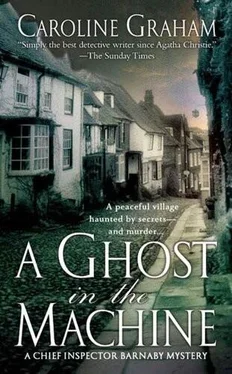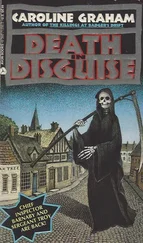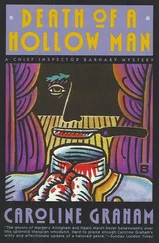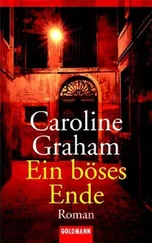“I’m sure you must all have been concerned about the situation here. About your futures.” The tone was encouraging and kindly. Mr. Ormerod smiled at everyone and produced a long foolscap envelope from one of his pockets. “I know how much Mr. Brinkley valued both your work and the friendly and pleasant atmosphere that was constantly maintained here. Not always the case in a large office, I assure you.”
Oh, for Christ’s sake get on with it, you maundering old windbag. Andrew swallowed sour liquid, longed to pee, tried to look as if none of this was anything to do with him. Unaware his hands were trembling.
“Certainly in my experience,” continued the solicitor, removing a single crisp sheet of paper from his envelope, “this type of bequest is unique. Mr. Brinkley has left his share of the business known as Brinkley and Latham to ‘all of the staff currently employed in the said business at the time of my death.’” He paused as excited murmurs broke out. There was some nervous laughter and Jessica, the office junior, started to cry. Gail Fuller gave her a cuddle and said not to worry, it would be just like working in John Lewis. Andrew, white-faced, gulped down more acid. When the noise gentled somewhat Mr. Ormerod spoke over it.
“This share to be divided pro rata and calculated according to the length of service of each individual represented. There is a request that Mr. Fortune – who, incidentally, inherits Mr. Brinkley’s car – should carry out the necessary computation. Are you prepared to do this, er…?” His glance wavered between the men present.
“That’s me,” said Leo. “And yes, I am.”
“Then I shall be hearing from you soon.” The solicitor beamed around the room again and departed, his leather top boots creaking at every step.
Andrew put on his coat, picked up his empty briefcase and followed. No way, no way in the entire motherfucking world would he remain behind. Imagine – shut up in his glass booth pretending to be busy while being forced to listen to the babbling and braying outside of the suddenly solvent. Morons popping corks, hurling party favours about, trying on funny hats.
There was silence as he passed through reception. Silence as he pulled the main door to. Then, running down the stairs, he heard ironical cheering break out. Crossing the market square he paused at the statue of Reuben Cozens and looked back. They were all crowding around the window, waving and laughing.
At Rainbow Lodge things were proceeding apace. The local commercial station, Radio Foresight, based in Uxbridge, had picked up the news item on Ava’s revelations and wanted to interview her on their afternoon chat show. The producer contacted the Echo , who gave them George Footscray’s number. He in turn called on Ava, offering to set up the meeting and to go with her if she would like. Ava, though delighted by the speed of her rapid ascent to stardom, was not best pleased that it was still being handled by a nobody with bad breath and fallen arches. A few brisk, well-chosen words made it clear that she had already moved into another league entirely. George, who had been dreaming that his world too was about to open up and that he might be on the point of managing the next Mystic Meg, ground his unstable false teeth and sadly returned to his crack-brained mother and macramé chandeliers.
The programme ran from 3:30 for an hour. Ava was asked to be there by 3:15. She drove to the outskirts of Uxbridge, then took a taxi to the studio but could have saved the money, for no one was waiting outside to greet her. In reception a slip of a girl wearing a pink plastic skirt no wider than a hair ribbon and a T-shirt reading “Let’s Do It” took her name and asked her to wait. Soon another slightly older girl turned up, this time in a halter top and floor-length black hobble skirt.
“Hi – I’m Cambria DeLane? Corey’s assistant?”
“Good after—”
But the girl, taking pinched little steps, was already disappearing. Ava followed, wondering how someone whose duties included meeting important visitors was allowed to go around with rainbow-striped hair hoicked into a bunch on the top of her head and constrained by a leopard-print bow.
Cambria opened the door of a narrow rectangular room with one glass wall through which you could see the studio. A youth with headphones, Jim by name, was sitting at a control panel and Ava was relieved to see he looked at least old enough to have left school. Another, even older, came forward to greet her. He wore shades, sprayed-on jeans and a baggy vest with “REM” printed on it. His skin and hair were fawn and both looked as if they could do with a good detox. He said: “He llo. ”
“Good after—”
“Get us some tea, heart face.” As Cambria disappeared he enclosed Ava’s outstretched hand in both of his own, cradling and squeezing it with careful tenderness, as if it were a ripe peach. “I’m Corey Panting. We’re just so thrilled you’ve agreed to come on the show, Ms. Barret.”
“Garret. And it’s Mrs.”
“I’m so sorry.” He frowned and wondered what other misinformation lay in wait for him. The research department was staffed by barely paid, inattentive graduates. Lightly armed with degrees in media studies, they regarded local radio as merely a stepping stone. Their eyes were always on the next big thing, which frequently proved to be the dole queue.
“I expect,” continued Corey Panting, “you’re familiar with the programme.”
“No,” said Ava.
“Ah.” This had never happened before. Even if the interviewee had never heard of Corey’s People they had not been rude enough to say so. “Well, briefly—”
Cambria came in with the tea. It was not even in a real cup and Ava refused it. This was not at all what she had expected.
Corey continued, “I introduce you. Fill in a bit of background, then start the interview—”
“How on earth do you manage to see anything down here with those sunglasses on?”
“If you could just listen, please? We don’t have a lot of time.” What Corey occasionally did, if the interviewee appeared lively, articulate and intelligent was ask them to stay on for the rest of the programme, contribute to any discussions or phone-ins. Not this one. “So, if I can quickly recap on what we have on you?” He picked up his notes, rattled the information off at some speed, then asked if there were any serious errors.
“Not errors as such but you have left out a recent and extremely important development in my career.”
“What’s that, then?” He glanced at his watch.
“Consultant on psychic matters to the Almeida Theatre.”
“The Almeida?” Now his voice revealed genuine interest and respect. Corey loved the theatre. “How did that come about?”
“The actress playing Madame Arcati in their new production of Blithe Spirit came to see me personally. And things developed from there.”
“I see.” Somehow he found that hard to believe. Yet why lie about a thing so easily checkable? And the stuff last Sunday had apparently been witnessed by a hall full of people.
Time to go in. Determined to appear unfazed, Ava strolled up to a round table on which stood two microphones, sat down and rearranged her paisley shawl.
“Could you take your bag off the table, please?” Then, when she had, “And say a few words into the mike?”
“That won’t be necessary. I have worked in the business for many years. My voice—”
“It’s purely technical, Ava. The engineer needs a sound level.”
“Of course.” Ava squared up to the mike. “Testing. One, two. One two. Mary had—”
“That’s fine.” Corey widened his eyes at the glass panel. The engineer, laughing, stuck up his thumb. And off they went.
Читать дальше










